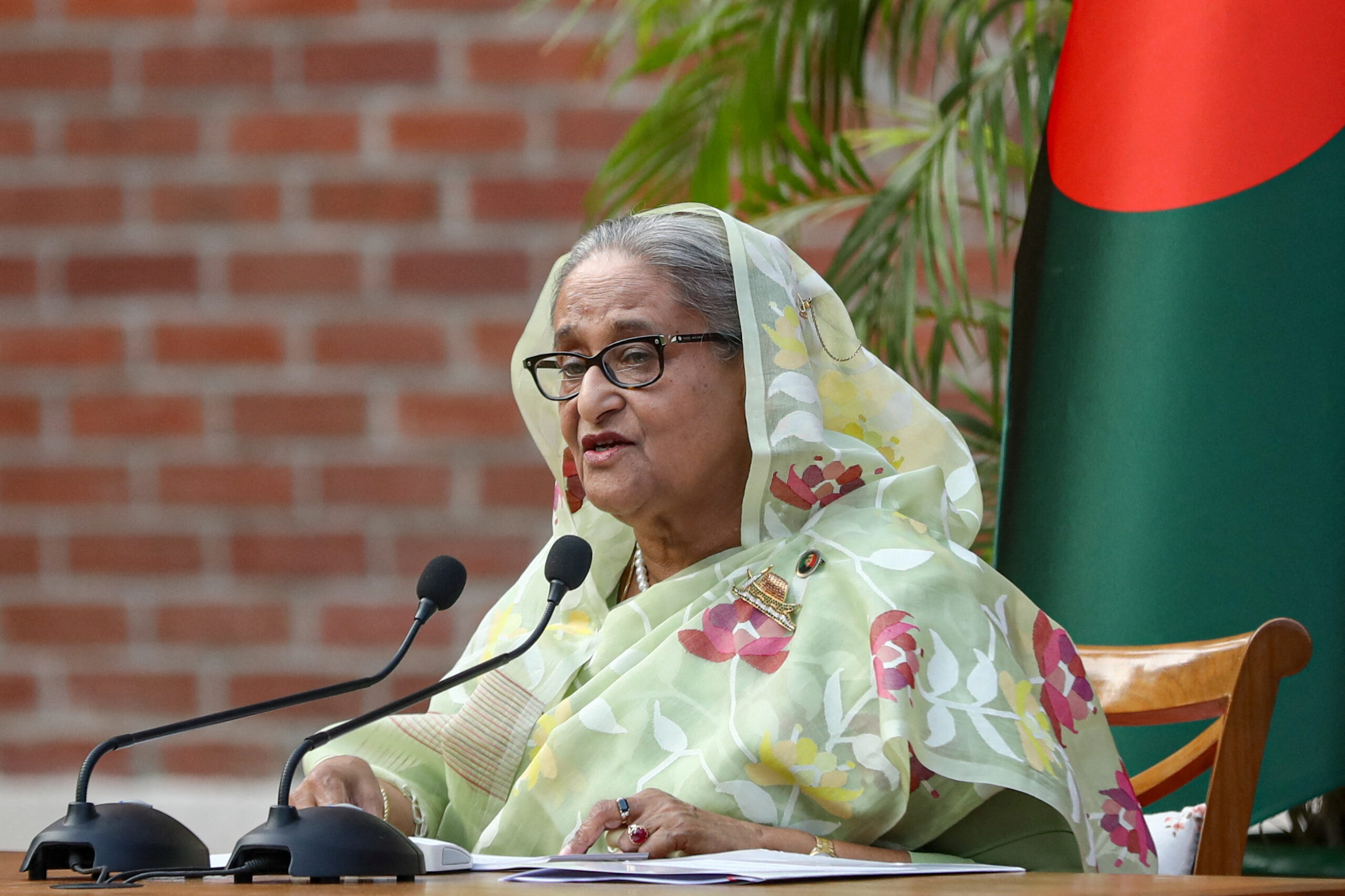Amid escalating violence in Bangladesh, Prime Minister Sheikh Hasina convened emergency security talks Sunday to regain the reins of power. But within hours, the popular uprising would precipitate her sudden ouster from office-a development few could see coming.
However, her son informed the BBC that it was the word of her close relatives rather than the heads of security services that finally convinced her to evacuate. Ms Hasina decided just in time—crowds came to her residence within several hours after she left it.
The National Security Committee meeting—convened late this morning—assembled the beleaguered prime minister with the country’s leaders from the navy, army, and air forces, the top tier of security bodies, and the police. The mood was sober.
Speculation to oust the prime minister had been building for weeks as anti-government protests unfolded nationwide. Scores have been laid down, hundreds injured; probably the deadliest civil unrest in Bangladesh since its liberation war of 1971.
At least 90 more died at the hands of security forces or from fatal attacks in protest zones on Sunday only, including an increasing number of police shot by demonstrators. BBC Bangla has learned from officials that Sheikh Hasina wanted to open two options. That is why there were all sorts of preparations for her to leave the country while she wanted to stay in power to the hilt—by force if necessary.
Military leaders were not satisfied with that prospect. On Sunday, citizens and demonstrators frolicked with field-level soldiers and army officers in different parts of the country. Having reflected on the status quo, senior military officers came to the understanding that life was intolerable.
At the meeting, each of the military top brass informed the prime minister that soldiers couldn’t shoot at civilians – but they were free to offer security backup to the police, sources said to the BBC. Other grievances included senior police chiefs reporting to the government they were out of bullets. “Police were exhausted. They told us that they lacked enough bullets,” retired Brigadier General M Sakhawat Hussain said to the BBC.
Sheikh Hasina, however, would not listen – and no one was willing to tell her to her face.
After the meeting was over, she gave out that heroic statement. She referred to the protesters as “terrorists” and encouraged people not to surrender to what she called “arsonists.”
Security forces worry they soon might have a situation very close to a civil war.
Some of the scenes that extended to social media were the ones taken during Sunday’s violence as the number of people killed continued to increase. Conspicuous images of young men with gunshots from police and the armed members of the ruling Awami League party’s youth faction were prolonging the people’s wrath.
When others realized the intensity, student leaders deliberately advanced the sitting-in from a mass march in Dhaka by a day, which caught the authorities off guard.
Analyzing intelligence reports and, based on students’ demands, started spreading and mobilizing thousands of people as planned to come to the capital the following day.
If the action forces tried to stop the protesters, there would be a repeat of the bloodbath all over again. Therefore, it was planned that the army chief Waker-Uz-Zaman would talk to the prime minister again.
Several of these sources opined that the three service chiefs met her on Sunday evening and assured her politely that the situation on the ground was becoming progressively charged and that thousands of crowds were expected in Dhaka on Monday morning. They could not ensure the house where she lives is safe.















